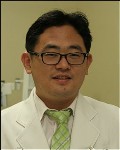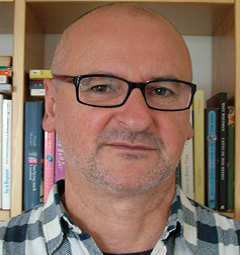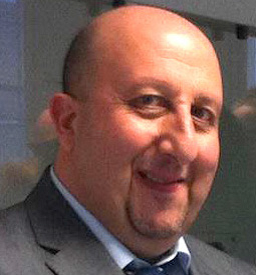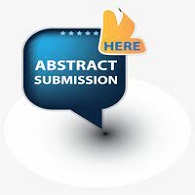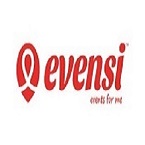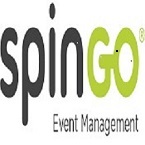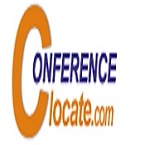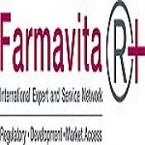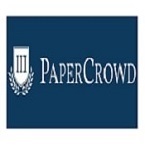Sessions/Track
Track 1: Pharmaceutical Sciences
Pharmaceutical Sciences is a multidisciplinary field encompassing various aspects of drug discovery, development, delivery, and use. It includes pharmacology, pharmaceutics, medicinal chemistry, and pharmacokinetics. Pharmacologists study how drugs interact with biological systems, determining their effects and mechanisms of action. Pharmaceutics focuses on designing and formulating drugs into dosage forms for optimal delivery and efficacy. Medicinal chemists synthesize and optimize chemical compounds to develop new drugs. Pharmacokinetics involves studying drug absorption, distribution, metabolism, and excretion in the body.
Track 2: Technology in Pharma Sciences
Technology plays a pivotal role in advancing pharmaceutical research, development, and manufacturing. Artificial intelligence (AI) and machine learning algorithms are used to analyze vast amounts of biological data for drug discovery and target identification. Big data analytics helps in predicting drug interactions, optimizing dosages, and identifying potential side effects. Nanotechnology enables the development of nano-sized drug delivery systems, improving drug solubility, stability, and targeted delivery. Digital health technologies, such as mobile apps and wearable devices, revolutionize patient monitoring, medication adherence, and healthcare accessibility.
Track 3: Novel Drug Delivery Systems, Biomarkers & Drug Targets
Novel drug delivery systems focus on improving the efficacy, safety, and patient compliance of medications. These systems include liposomes, nanoparticles, microneedles, and implantable devices, allowing for targeted and controlled drug release. Biomarkers are measurable indicators of biological processes or responses to drugs, aiding in disease diagnosis, prognosis, and treatment monitoring. Drug targets are specific molecules or proteins in the body that drugs interact with to produce therapeutic effects, such as enzymes, receptors, or genetic sequences.
Track 4: Bioequivalence and Bioavailability
Bioequivalence refers to the similarity in the rate and extent of drug absorption between a generic and brand-name drug. It is assessed through comparative pharmacokinetic studies to ensure the generic drug performs similarly to the original. Bioavailability measures the proportion of the drug that reaches systemic circulation and is available to produce its desired effect. Factors affecting bioavailability include drug formulation, route of administration, and patient-specific factors like metabolism and gastrointestinal conditions.
Track 5: Clinical Pharmacy and Pharmacy Practices
Clinical pharmacy involves pharmacists working directly with patients and healthcare providers to optimize medication therapy. This includes medication reviews, counseling patients on proper drug use, monitoring for adverse effects, and ensuring medication adherence. Pharmacy practices encompass a range of services such as medication management, drug utilization reviews, medication therapy management (MTM), and collaborative drug therapy management (CDTM). Pharmacists play a crucial role in interdisciplinary healthcare teams, providing valuable expertise in medication-related matters.
Track 6: Pharmacogenomics and Pharmacoepidemiology
Pharmacogenomics studies how an individual's genetic makeup influences their response to drugs. It aims to tailor drug therapy based on genetic variations, optimizing treatment outcomes and minimizing adverse reactions. Pharmacoepidemiology focuses on the population-level study of drug use, safety, and effectiveness. It utilizes epidemiological methods to analyze real-world data from large patient populations, identifying trends, risks, and benefits associated with medications.
Track 7: Pharmacology and Toxicology
Pharmacology is the study of how drugs interact with biological systems to produce therapeutic effects. It encompasses drug mechanisms of action, pharmacokinetics, pharmacodynamics, and drug-receptor interactions. Toxicology, on the other hand, focuses on the adverse effects of chemicals and drugs on living organisms. It assesses the safety, toxicity, and risk factors associated with drug exposure, guiding safe dosages and identifying potential hazards to human health.
Track 8: Pharmaceutical Manufacturing and Pharmacoeconomics
Pharmaceutical manufacturing involves the production of pharmaceutical products on a large scale while maintaining quality, safety, and efficacy. It includes processes such as formulation development, drug synthesis, purification, and packaging. Pharmacoeconomics examines the economic aspects of drug development, pricing, and utilization. It evaluates the cost-effectiveness of medications, considering factors such as healthcare outcomes, patient quality of life, and healthcare resource allocation.
Track 9: Pharmaceutical Manufacturing, Scale Up and Tech transfer
This topic covers the transition of drug development from laboratory-scale formulations to large-scale manufacturing. It involves scaling up production processes while ensuring consistency, efficiency, and regulatory compliance. Tech transfer refers to the transfer of knowledge, processes, and technologies from research and development to commercial manufacturing facilities. It includes ensuring reproducibility, quality control, and validation of manufacturing processes.
Track 10: Regulatory Authority Compliance
Regulatory compliance in the pharmaceutical industry involves adhering to stringent guidelines and standards set by regulatory authorities such as the FDA, EMA, and others. It includes Good Manufacturing Practices (GMP), which ensure the quality and safety of pharmaceutical products during manufacturing. Good Clinical Practices (GCP) govern the conduct of clinical trials, ensuring patient safety, data integrity, and ethical practices. Compliance with regulatory requirements is essential for drug approval, marketing authorization, and ensuring public health and safety.
Track 11: Pharma Market Research
Market research in the pharmaceutical industry involves analyzing market trends, patient needs, and competitor strategies to inform decision-making. It helps pharmaceutical companies understand the demand for specific drugs, pricing strategies, and potential market opportunities. Market research includes assessing patient preferences, healthcare provider opinions, and payer trends to develop effective marketing strategies and optimize product launches.
Track 12: QC & QA: Quality control and Quality assurance
Quality control (QC) ensures that pharmaceutical products meet established quality standards throughout the manufacturing process. It involves testing raw materials, in-process samples, and finished products for purity, potency, and safety. Quality assurance (QA) encompasses the overall system of processes and procedures to maintain product quality and compliance with regulatory requirements. QA includes establishing quality management systems, conducting audits, and implementing corrective actions to prevent quality issues.
Track 13: Analytical strategies for pharmaceutical products
Analytical strategies are critical for assessing the quality, purity, and potency of pharmaceutical products. This includes various analytical techniques such as chromatography, spectroscopy, and mass spectrometry. These methods help identify and quantify active ingredients, impurities, and degradation products in drug formulations. Analytical strategies also ensure batch-to-batch consistency, stability, and compliance with regulatory standards.
Track 14: Formulations and NNDS
Pharmaceutical formulations refer to the development of dosage forms that deliver medications to patients. This includes tablets, capsules, injections, creams, and inhalers. Non-novel drug substances (NNDS) are existing drugs with new formulations or delivery methods aimed at improving patient adherence, bioavailability, and therapeutic outcomes. Formulation scientists optimize drug formulations to ensure stability, solubility, and effective drug delivery to the target site of action.
Track 15: Quality by design (QbD) approach
Quality by Design (QbD) is a systematic approach to pharmaceutical development that focuses on predefined quality objectives. It emphasizes understanding product and process variability and designing robust manufacturing processes. QbD involves identifying critical quality attributes (CQAs), defining critical process parameters (CPPs), and conducting risk assessments to ensure consistent product quality. The goal is to build quality into the product from the outset, reducing variability and ensuring regulatory compliance.
Track 16: Pharmaceutical Packaging and Logistics
Pharmaceutical packaging plays a crucial role in protecting medications from contamination, degradation, and tampering. It involves selecting appropriate packaging materials, designing secure and child-resistant containers, and ensuring product stability during storage and transportation. Pharmaceutical logistics cover the planning, implementation, and control of the supply chain for pharmaceutical products. This includes inventory management, temperature-controlled shipping, and compliance with regulatory requirements for product handling and distribution.
Track 17: Clinical trials and Pharmacovigilance
Clinical trials are essential for evaluating the safety and efficacy of new drugs before they are approved for use in patients. They involve testing the drug in human volunteers or patients under controlled conditions, following strict protocols. Pharmacovigilance is the ongoing monitoring of drug safety after it is on the market. It involves collecting, analyzing, and reporting adverse drug reactions and ensuring the continued safety of medications in real-world use.
Track 18: Pharmacoeconomics
Pharmacoeconomics examines the economic impact of pharmaceuticals on healthcare systems and society. It includes cost-effectiveness analyses, budget impact assessments, and health outcomes research to inform healthcare decision-making. Pharmacoeconomic studies compare the costs and outcomes of different treatment options, helping policymakers and healthcare providers optimize resource allocation and improve patient care.
Track 19: Active Pharmaceutical Ingredients
Active Pharmaceutical Ingredients (APIs) are the biologically active components in pharmaceutical products that produce the desired therapeutic effect. APIs can be synthetic or extracted from natural sources and must meet stringent quality and purity standards. API development involves chemical synthesis, purification, and characterization to ensure consistency and efficacy. APIs are the core component of drug formulations, and their quality is critical for the safety and effectiveness of medications.
Track 20: Drug discovery and NCEs
Drug discovery is the process of identifying and developing new chemical compounds (New Chemical Entities, NCEs) with therapeutic potential. It involves target identification, screening compound libraries for activity, optimizing lead compounds for potency and selectivity, and conducting preclinical testing. NCEs hold promise for treating diseases with unmet medical needs, and their development requires a combination of scientific expertise, technological innovation, and regulatory oversight.
